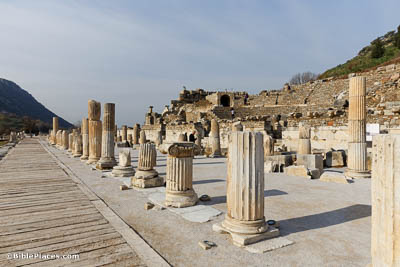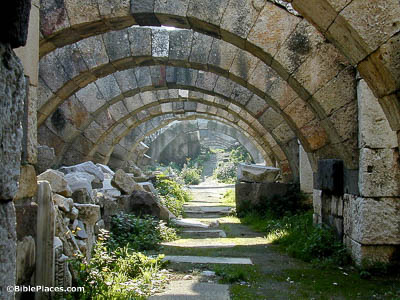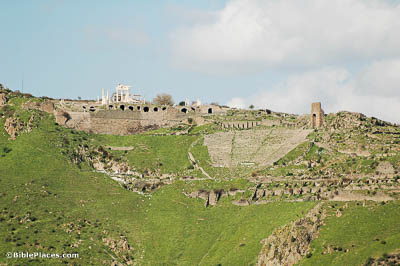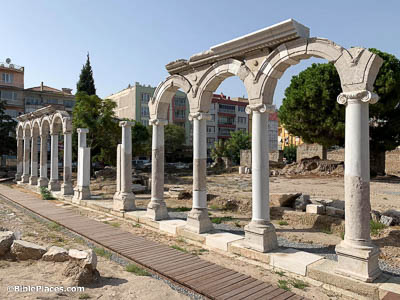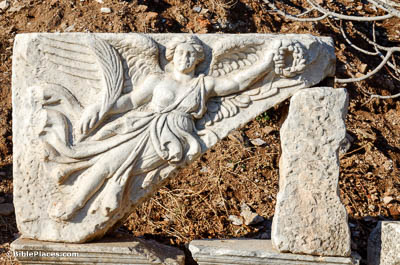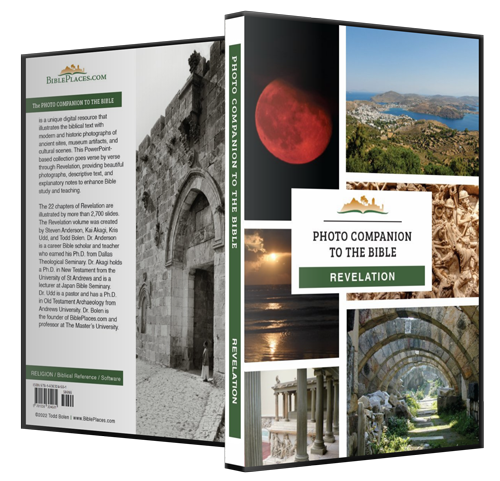To the angel of the church in Ephesus write . . . (Revelation 2:1)
Ephesus was in every respect the leading city of Asia Minor, and it was one of the four great cities of the Roman Empire—the other three being Rome, Alexandria, and Syrian Antioch. Politically, it was the provincial capital of Asia, and it was the seat of the proconsul, the official who was set over the whole senatorial province of Asia (cf. Acts 19:38). The agora and small theater shown here are located in the upper city.
